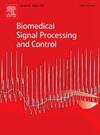严重急性呼吸系统综合征冠状病毒数学模型的计算随机框架设计
IF 4.9
2区 医学
Q1 ENGINEERING, BIOMEDICAL
引用次数: 0
摘要
本研究对新型冠状病毒在人群中的感染动态进行了全面研究,考虑了疾病传播过程中所有潜在的相互作用。新型非线性传染病系统的求解是通过 Levenberg-Marquardt 反向传播神经网络随机进行的。该过程包含 10 个神经元,隐层中的传递函数为对数正余弦函数。训练数据占 74%,测试和验证静态数据分别占 14% 和 12%。为了评估所设计求解器的精确度,对模型的每种情况都进行了基于所获结果和参考结果的比较,以及可忽略的绝对误差(小数点后第四位至第七位)。稳定性和敏感性分析揭示了模型在不同参数下的稳健性。对于模型在各种状态下的可靠性、一致性和正确性,还提供了基于相关性、误差柱状图、状态转换和回归分析的统计指数的数字分析和图表形式。本文章由计算机程序翻译,如有差异,请以英文原文为准。
A design of computational stochastic framework for the mathematical severe acute respiratory syndrome coronavirus model
This study presents the comprehensive investigations into the dynamics of a novel coronavirus infection within a population, which accounts for all potential interactions in the disease’s spread. The solutions of the novel nonlinear infectious disease system are performed stochastically by using the Levenberg-Marquardt Backpropagation neural network. This process contains ten neurons and log-sigmoid transfer function in the hidden layers. The training data is taken as 74%, while the testing and authentication statics are used as 14% and 12%. To assess the precision of the designed solver, a comparison based on the obtained and reference results along with the negligible absolute error up to order fourth to seventh decimal places is performed for each case of the model. Stability and sensitivity analyses reveal the robustness of the model across various parameters. For the reliability, consistency, and correctness of the model across various states, and the numerical analysis with graphical form of the statistical indices based on correlation, error histograms, transition of state, and regression analysis is presented.
求助全文
通过发布文献求助,成功后即可免费获取论文全文。
去求助
来源期刊

Biomedical Signal Processing and Control
工程技术-工程:生物医学
CiteScore
9.80
自引率
13.70%
发文量
822
审稿时长
4 months
期刊介绍:
Biomedical Signal Processing and Control aims to provide a cross-disciplinary international forum for the interchange of information on research in the measurement and analysis of signals and images in clinical medicine and the biological sciences. Emphasis is placed on contributions dealing with the practical, applications-led research on the use of methods and devices in clinical diagnosis, patient monitoring and management.
Biomedical Signal Processing and Control reflects the main areas in which these methods are being used and developed at the interface of both engineering and clinical science. The scope of the journal is defined to include relevant review papers, technical notes, short communications and letters. Tutorial papers and special issues will also be published.
 求助内容:
求助内容: 应助结果提醒方式:
应助结果提醒方式:


